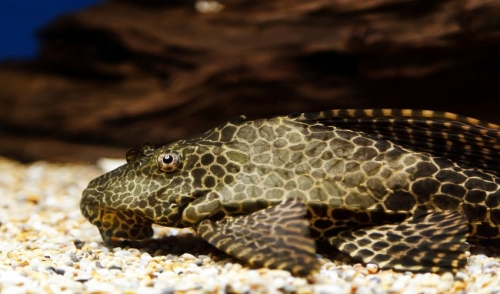10 Symptoms of Diabetes in Dogs
Diabetes can be a challenging condition to manage, especially in pets that cannot verbally communicate how they feel. Recognizing the symptoms of diabetes in...

Setting up a new aquarium can be an overwhelming experience, but it can be lovely to see your tank all bright and sparkling. Do you need an algae eater to keep it that way?
About Tank Algae
Most fish tanks develop algae, and if left unchecked, it can lead to strong smells, murky green or brown water or even health problems for your resident fish. Algae are simple aquatic plants that grow best in water with significant uneaten food or waste, and different types of algae may develop. Some algae is free-floating, while others may appear as a scummy or filmy layer on the sides of the tank or on tank features such as rocks, gravel or wood. The largest algae may even have a grass-like or seaweed-like structure. While some small amount of algae is natural and to be expected, if the problem is growing out of control, it may be time to consider an algae eater.
Do You Need an Algae Eater?
There are many ways to control algae in the tank, and you do not necessarily need an algae eater to combat the problem. Because an algae eater means one more fish or creature in the tank, its needs have to be considered as well, and it may be best to control the algae in other ways, such as…
If there is still a significant algae problem after taking several steps to control it, it may be time to bring an algae eater home.
Choosing the Right Algae Eater
Algae eaters are specific organisms that thrive on a diet of algae. Not all organisms eat all types of algae, however, and it is critical to choose the type of algae eater that will make meals of the specific algae in your tank. The most common algae eaters include snails, shrimp, clams and even some fish, such as specific types of catfish or plecos. To be sure you are choosing the best algae eater for your tank…
Above all, avoid getting an algae eater before you have algae for them to eat. They need enough algae to survive, and if your tank does not have any, getting an algae eater is not a technique to be sure you don't develop an algae problem. When the problem is there, however, they can be a welcome – and hungry! – addition to your tank.
We are constantly adding new specials to our site. Be sure to check back often!
We currently do not have any events scheduled.

Diabetes can be a challenging condition to manage, especially in pets that cannot verbally communicate how they feel. Recognizing the symptoms of diabetes in...
Comments